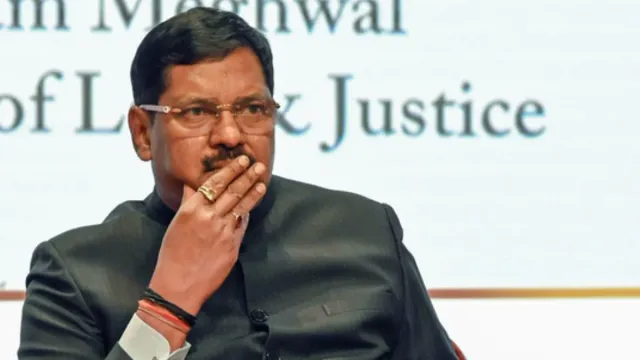- By Abhishek Sheoran
- Wed, 04 Jun 2025 01:42 PM (IST)
- Source:JND
Chief Justice of India BR Gavai said judges accepting government appointments and contesting elections after retirement raise serious ethical questions and subvert public confidence in the judiciary.
Speaking at a round table conference organised by the Supreme Court of Britain on the topic of 'maintaining judicial legitimacy and public trust', CJI Gavai said such engagements of a judge after retirement create a perception in public that his decisions might have been influenced due to his desire for future political or governmental roles.
ALSO READ: Assam Cabinet Approves Expansion Of Kaziranga National Park; Move To Promote Sustainable Tourism
"If a judge takes up another appointment with the government immediately after retirement, or resigns from the bench to contest elections, it raises significant ethical concerns and invites public scrutiny. A judge contesting an election for a political office can lead to doubts regarding the independence and impartiality of the judiciary, as it may be seen as a conflict of interest or as an attempt to gain favour with the government. The timing and nature of such post-retirement engagements could undermine the public's trust in the judiciary's integrity, as it could create a perception that judicial decisions were influenced by the prospect of future government appointments or political involvement." Live Law quoted CJI Gavai as saying.
The CJI said he and many of his colleagues at times made requests to the judges to refrain from taking by post-retirement roles from the government to uphold the credibility and independence of the judiciary.
CJI Gavai also commented on the process of appointment of judges, asserting that there were two occasions in India when the senior-most judges were sidelined during the appointment of the Chief Justice of India, as the decisions in this regard were made by the government back then.
"In India, a key point of contention has been the question of who holds primacy in judicial appointments. Until 1993, it was the executive that had the final say in the appointment of judges to the Supreme Court and High Courts. During this period, the executive twice superseded the senior-most judges in appointing the Chief Justice of India, which went against established tradition," he said.
CJI Gavai also defended the collegium system for the appointment of judges. He said the National Judicial Appointment Commission Act was struck down by the Supreme Court in 2015 as it was a threat to the independence of the judiciary by giving primacy to the executive in appointments.
"There may be criticisms of the collegium system, but any solution must not come at the cost of judicial independence. Judges must be free from external control," he added.
Chief Justice of England and Wales, Baroness Carr, and UK Supreme Court Judge George Leggatt also participated in this round table conference.

